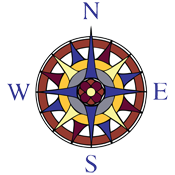Investigative Archaeology- Field Methods
Description:
Archaeology is the field of study that unlocks the clues to past civilizations. Forensic archaeology applies these methods to solve puzzles. In this class, students will use physical evidence to try to understand or re-create what happened to an individual through life, death, and burial or to an object though its creation, use, and after it was lost, buried, or discarded. Students will practice field archaeological techniques such as surveys, excavation, and mapping, as well as documentation, analysis, and illustration of human material culture. This archaeological lab will be guided by a scholar of art and antiquity. Dr. Erica Hughes has traveled and participated in archaeological explorations throughout the ancient world. Students will "dig" her personal photos and stories. Class discussions, group activities, and individual hands-on experiences are designed to help teens understand the creation, recovery, and conservation of artifacts and remains.
First semester, students will learn the field component of investigative archaeology. The class will first learn to plan their trench on grid paper and then practice actual excavation techniques in a field square. Students will learn to use the baulk trimming method in addition to using a total station and plumb bob. The instructor will teach methods of recording stratigraphy, drawing sections and trenches, and documenting artifacts through site photography and sketching. The class will learn about lighting, angles, and scales for photographing their finds. Archaeological illustration of bones, figurines, and pottery, metal, and stone vessels will be taught with pencil, and students will ink their best work for a grade.
Topics in this Series: Field Methods (Semester 1), Forensics (Semester 2). Students continuing from first semester receive priority pre-registration for second semester.
Prerequisites: 8th grade students may only enroll in this course if they successfully completed one of Dr. Hughes' 2019-20 archaeology classes.
Workload: Students should expect to spend 1-2 hours per week outside of class.
Assignments: All assignments will be posted on password-protected Canvas classroom management site. There, students access assignments, upload homework, take automated quizzes and tests, track grades, and message instructor and classmates
Assessments: Points will be assigned for class activities and demonstration of field techniques in addition to a semester project.
Textbook/Materials: A pdf version of the required textbook will be posted on the class Canvas site for reading assignments.
Supplies/Equipment: Students should purchase and bring with them each week the following tools and supplies:
Credit: Homeschool families may wish to count this course as a component (partial) credit in Social Sciences for purposes of a high school transcript.
We are sorry but registration for this event is now closed.
Please contact us if you would like to know if spaces are still available.

